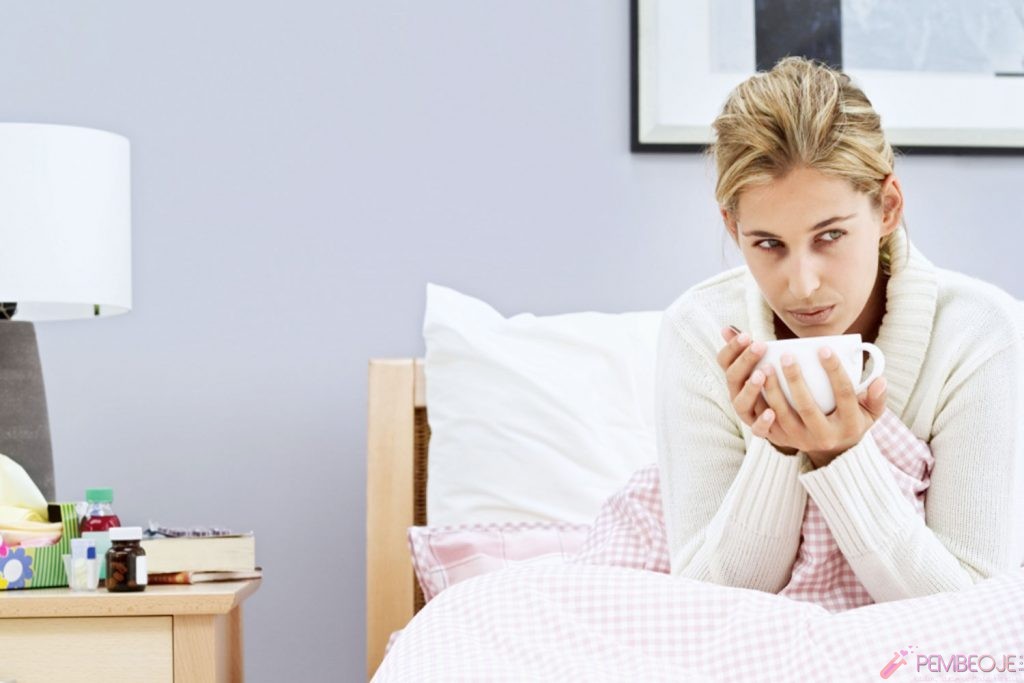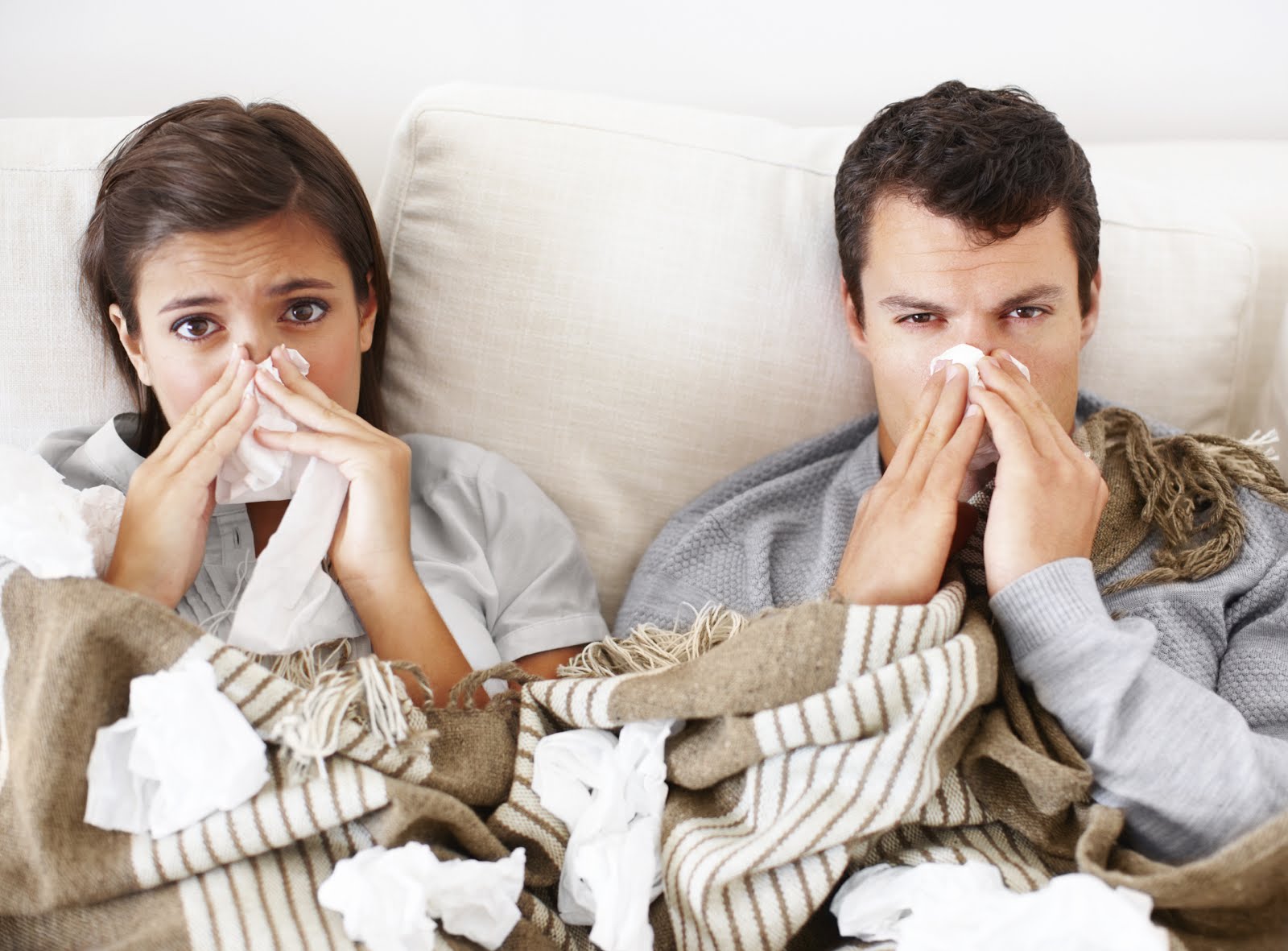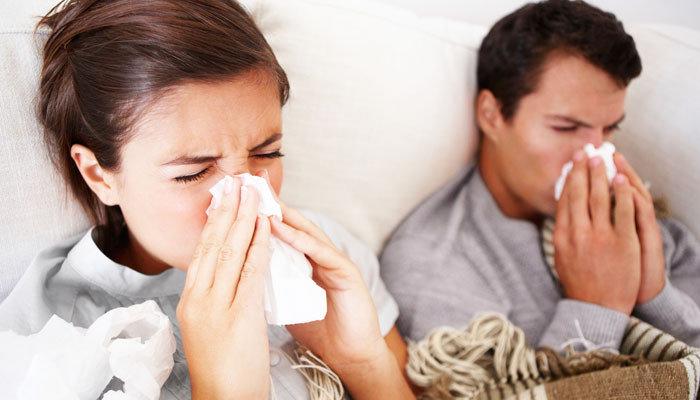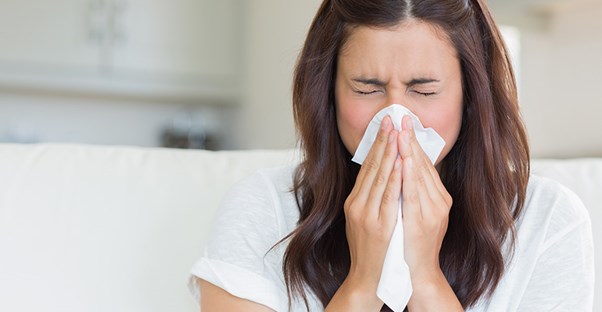With the effect of cold weather, winter diseases are on the rise. Especially flu, colds and colds can suddenly put people to bed and disrupt their quality of life. It is possible to overcome the common cold in a mild way without causing more serious pictures with some practical suggestions. The common cold is a chronic disease that everyone succumbs to from time to time. Due to cold and flu viruses; complaints of nasal congestion, runny nose, sneezing and even coughing with malaise.

Unfortunately, there is no miracle cure for the common cold. Antibiotics, which are effective in bacterial infections, have no effect on these viruses. The person usually sniffles constantly, self-medicates and waits for the symptoms to pass. However, there are some measures that can be taken to make the common cold a little more comfortable and not to infect the environment. In this way, the disease can be overcome even more quickly.

Recommendations for the Common Cold
- Stress can weaken the immune system and cause us to catch a cold or flu easily. Trying to avoid all kinds of stress is also important in this respect.
- Think positively. Thinking positively is very important; studies show that the immune system works better in people with a positive outlook on life. Thinking that our body is resilient and durable can facilitate healing.
- Rest and relaxation is perhaps the oldest treatment for colds and flu.

- Keep yourself warm. As long as this does not lead to excessive sweating, the body’s immune system can focus its energy on fighting the infection.
- Take light, leisurely walks. This increases blood circulation and helps to bring white blood cells to the site of infection. Short walks outdoors are better than lying under the covers in a stuffy room.
- Pay attention to your diet. During a cold, the body’s metabolism, which is trying to take measures against infection, should not be exhausted by indigestible foods. Low-fat foods, meat and dairy products, fresh fruits and vegetables should be eaten.

- Chicken soup reduces the consistency of the secretion in the nose and relieves congestion. In addition, especially hot chicken soup increases secretion production and helps to expel germs from the body through sneezing and blowing.
- Drink plenty of fluids. 6-8 glasses of water, fruit juice, tea and other drinks can replace the fluid lost due to colds. It also facilitates the removal of foreign substances from the body.
- Humidifying the air in the room with water vapor is a very good method.
- Do not smoke, stay away from the smoking environment. Smoking or exposure to smoke causes the throat, which is already sensitive due to infection, to worsen. It has a negative effect on the cells that try to clear the germs from our respiratory tract against infection.

- Take enough vitamin C. It has long been believed to reduce coughing, sneezing and other symptoms. High doses of vitamin C can be used for a short time under the supervision of a doctor. But you can also increase your fluid intake by drinking juices from vitamin C-rich fruits such as oranges, tangerines, kiwi and grapefruit.
- Clean your nose with salt water. It helps to reduce edema in the nose and reduce nasal congestion. It also provides mechanical cleaning of germs. Such saline sprays can be bought in pharmacies or simply prepared and used at home. A teaspoon of pure salt in a glass of water is mixed with a teaspoon of pure salt and then dripped into the nose with nasal droppers to provide significant relief.

How to Protect Yourself from Germs and Prevent Them from Infecting Those Around You!
- Wash your hands. Hand washing is very important in removing germs. With soap and warm running water, cold viruses are removed from the skin of the hands and fingers. Soap and detergents do not affect the flu virus; the viruses are removed mechanically by washing. Hand washing is very important after contact with the person with the flu or their belongings. Children in particular should be advised to wash their hands after contact with a sick person.
- Do not share cups or glasses. Disposable paper cups are particularly good at preventing the spread of germs in schools and workplaces.

- Use paper tissues. It is important to use a tissue once and throw it away, as you can infect someone else by touching a table, chair, armchair, etc.
- Do not touch your eyes, nose and mouth. If you come into contact with someone who has a cold, do not touch their eyes, nose or mouth.
- Advise your child to wash hands frequently.
- Use paper towels. Paper towels should be preferred to cotton towels in the kitchen and other places, especially when you have a cold.
- Keep toys clean. Toys can harbor germs. Toys should be washed regularly with hot, soapy water.
- Sneeze in another direction. It is important to sneeze away from others or into a tissue. If you cover your mouth with your hands, always wash your hands afterwards. Make sure your children follow your example.

- Ventilate your environment. Germs are suspended in stagnant air. They are removed when the windows are opened and the room should also be humidified. A wet cloth on the radiator is sufficient. This prevents the nasal mucosa from drying out.
- Remove germs. Germs can live for up to three hours on frequently touched surfaces such as door handles, handrails, light switches, telephones and remote controls. It is useful to wipe them occasionally with disinfectants.
BONUS: Common Cold vs. Flu
- Fever: rare vs. 38-39 C
- Headache: rare vs. usually
- General Aches and Pains: minimal vs. usually
- Tiredness: light vs. 2-3 weeks
- Blocked Nose: usually vs. sometimes
- Sneezing: usually vs. sometimes
- Sore Throat: usually vs. sometimes
- Cough: rare vs. usually
- Complications: sinusitis and ear pain vs. bronchitis, pneumonia
- Prevention: impossible vs. vaccination and antiviral drugs
